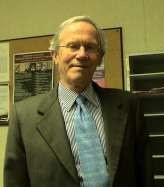Its early days yet but according to Ken Gray in the Citizen on Dec 26 (Handicapping the next mayor) things are warming up. Gray attempts to handicap those he sees as lead contenders in the next mayoralty race. I was particularly interested reading his comments on one of the favourites.
“Peter Hume: The early favourite. A red Tory, the Alta Vista councillor would be able to mobilize much of the Conservative machine in Ottawa. And he counts Munter, so he has wide appeal. A great conciliator and deal-maker on council, he will need to be a superb fundraiser because he is not a wealthy man. Mr. Hume is so eager to run you expect see him covered in green paint around city hall after making election signs in the basement all night.”
In a recent post I commented on sources local councilors receive funding from to support their campaigns and the potential for serious conflict of interest. Peter Hume is one of several candidates identified in the 2003 and 2006 campaigns whose funding sources include a high percentage of contributions from firms and individuals that have business interests that might benefit from future council decisions.
Hume did particularly well in this area. In the 2003 campaign at least 71% of $26,999 in contributions came from corporations or individuals with direct interests in future developments within his ward and within the city as a whole. In the 2006 campaign there were no direct corporate campaign contributions but at least 62% of $27,062 came from individuals whose firms/employers might benefit similarly.
So, if Peter Hume decides to run for mayor, as most believe he will, he should have little difficulty raising funds. Many of the sources he has used in previous campaigns will be more than pleased to help out and maximize their contributions.
The sad fact is that this is all perfectly legal according to current provincial/municipal laws. It is disturbing that provincial laws allow contributions of this nature when strict measures to prevent implications of inappropriate election contributions are in place at the federal level. The time has come for the Province of Ontario to act on this issue too.
Monday, December 29, 2008
Sunday, December 7, 2008
Municipal Election Contributions Ethics - 101
Government of Ontario’s municipal election law currently permits contributions by corporations and unions provided they are registered within the province. Contributions from individuals are also allowed, provided that they reside in the province and that recovery of contributions is not being made from a company or employer.
Firms and individuals that have business interests that might benefit from future decisions (e.g. votes in council) by persons standing for election are therefore permitted by current election law. Accepting contributions from these firms and individuals puts councilors in a conflict-of-interest situation and at worst might lead to accusations of bribery and corruption.
In recent elections a large percentage of contributions to several councillor’s campaigns came from corporations or from individuals with direct interests in future developments within the ward or within the city as a whole. This includes individuals who are owners, executives or senior managers in these firms.
Some councillor’s election campaign contributions show no direct corporate donations to their campaign. But indicate a large percentage of contributions from individuals whose firms/employers might benefit in the manner identified above.
It is unfortunate that individual councillors are not considering the ethical dilemma they place themselves in when accepting contributions from prominent individuals whose firms or employers might benefit from later decisions and action taken by city council. This is especially the case when one considers that policies regarding gifts and entertainment to city staff by firms/people doing business with the City have been tightened up in order to avoid appearance of conflict of interest.
It is very disturbing that provincial law allows contributions of this nature at both provincial and municipal levels. Stricter measures that reduce implications of inappropriate election contributions are already in place at the federal level.
http://www.ottawa.ca/calendar/ottawa/citycouncil/occ/2005/06-08/ACS2005-CCS-CSE-0006-DOC-1.htm
Firms and individuals that have business interests that might benefit from future decisions (e.g. votes in council) by persons standing for election are therefore permitted by current election law. Accepting contributions from these firms and individuals puts councilors in a conflict-of-interest situation and at worst might lead to accusations of bribery and corruption.
In recent elections a large percentage of contributions to several councillor’s campaigns came from corporations or from individuals with direct interests in future developments within the ward or within the city as a whole. This includes individuals who are owners, executives or senior managers in these firms.
Some councillor’s election campaign contributions show no direct corporate donations to their campaign. But indicate a large percentage of contributions from individuals whose firms/employers might benefit in the manner identified above.
It is unfortunate that individual councillors are not considering the ethical dilemma they place themselves in when accepting contributions from prominent individuals whose firms or employers might benefit from later decisions and action taken by city council. This is especially the case when one considers that policies regarding gifts and entertainment to city staff by firms/people doing business with the City have been tightened up in order to avoid appearance of conflict of interest.
It is very disturbing that provincial law allows contributions of this nature at both provincial and municipal levels. Stricter measures that reduce implications of inappropriate election contributions are already in place at the federal level.
http://www.ottawa.ca/calendar/ottawa/citycouncil/occ/2005/06-08/ACS2005-CCS-CSE-0006-DOC-1.htm
Subscribe to:
Comments (Atom)
